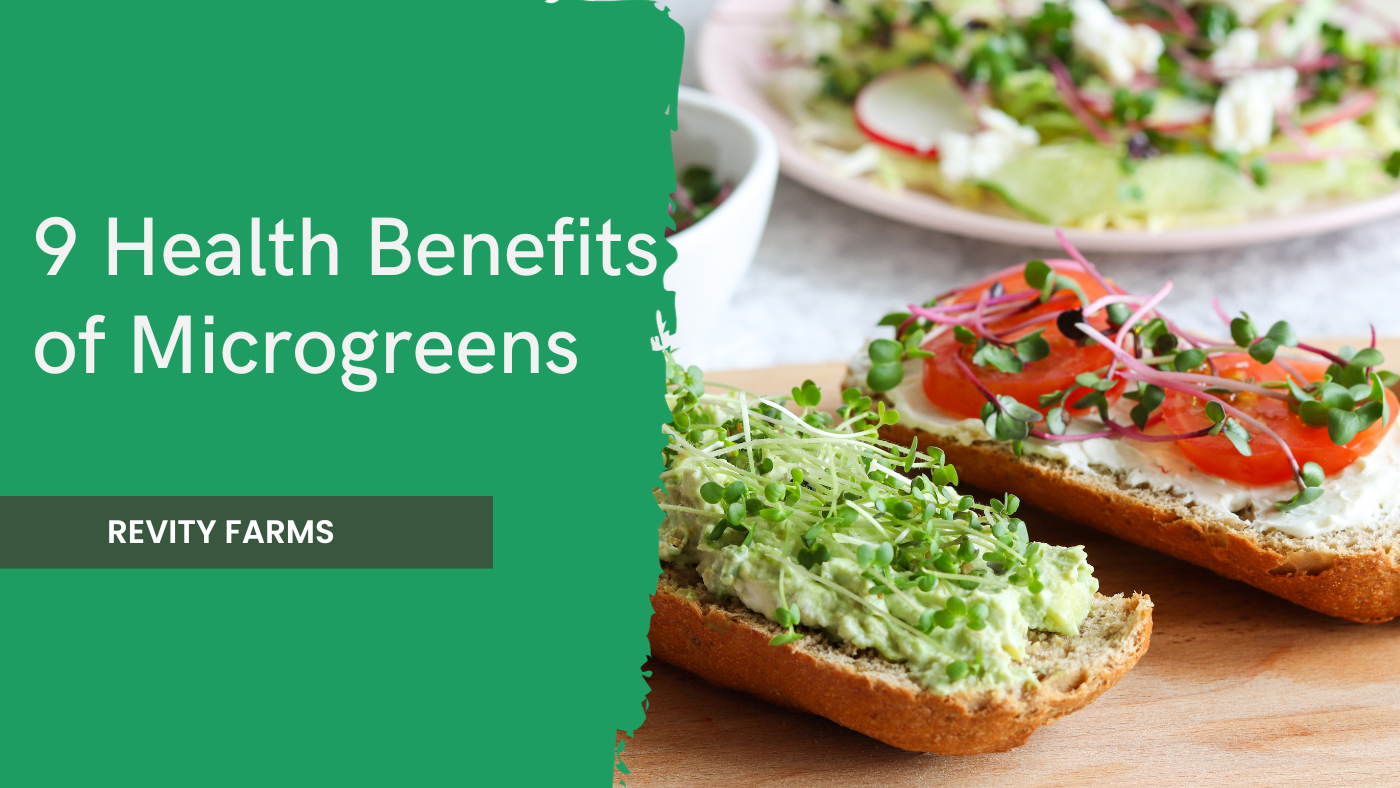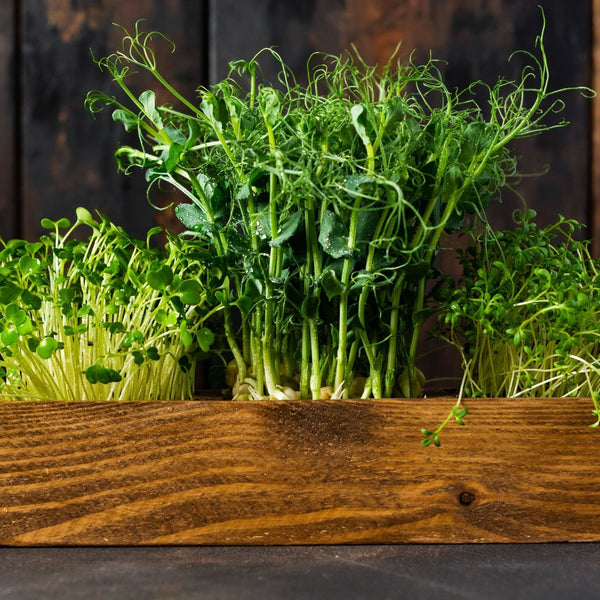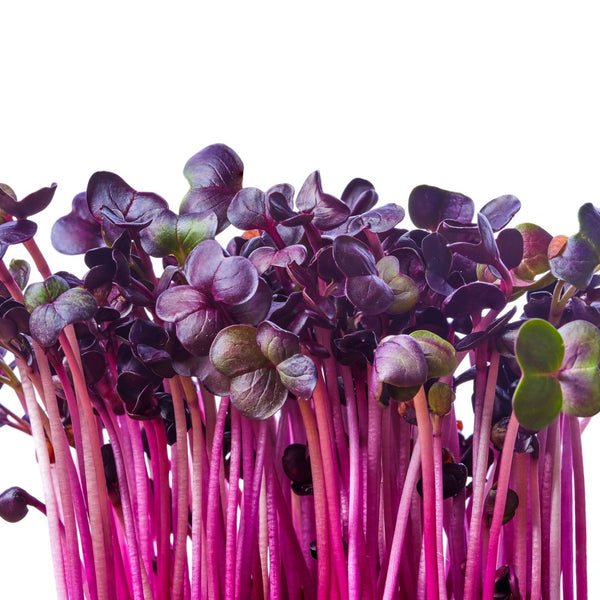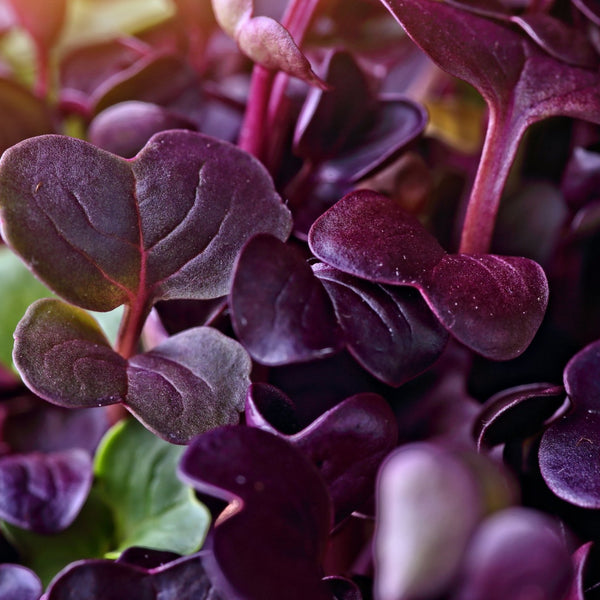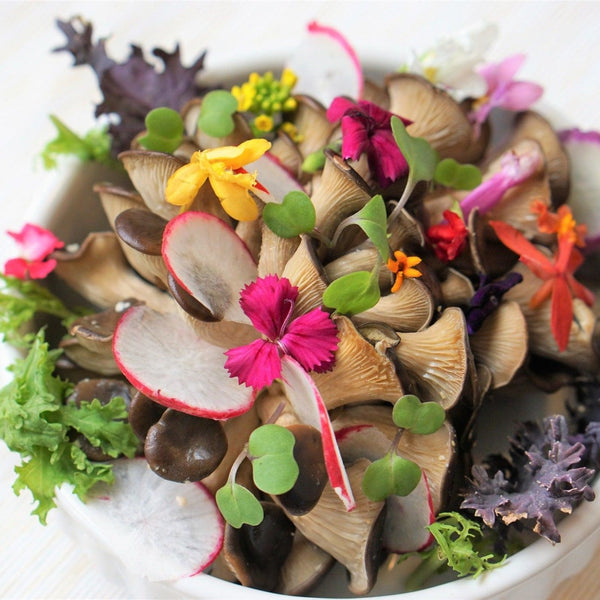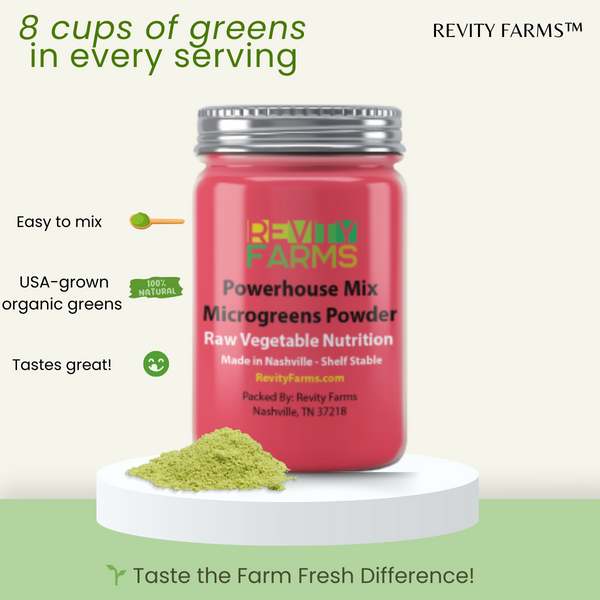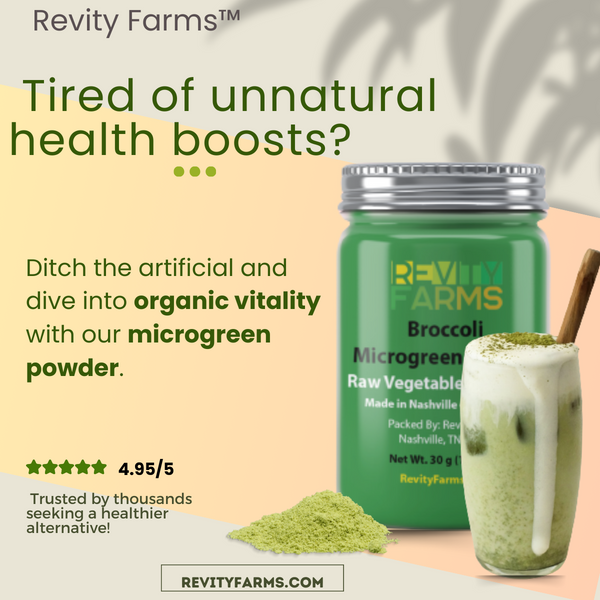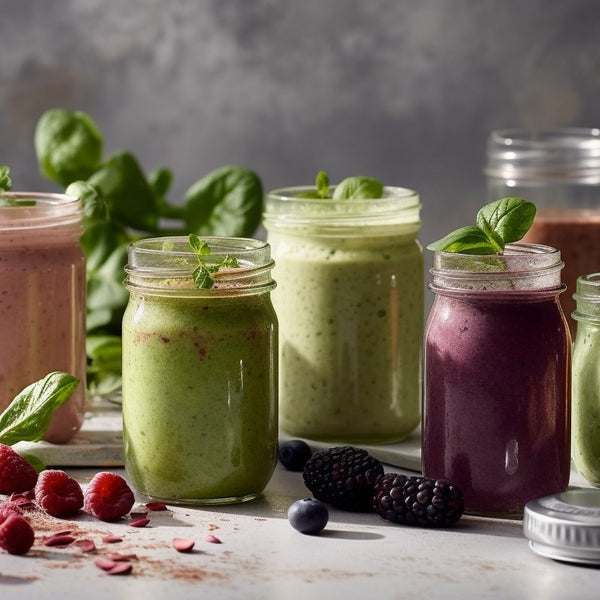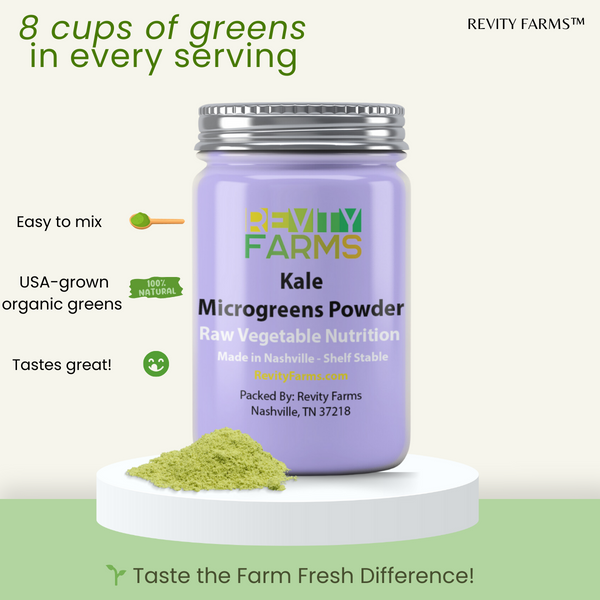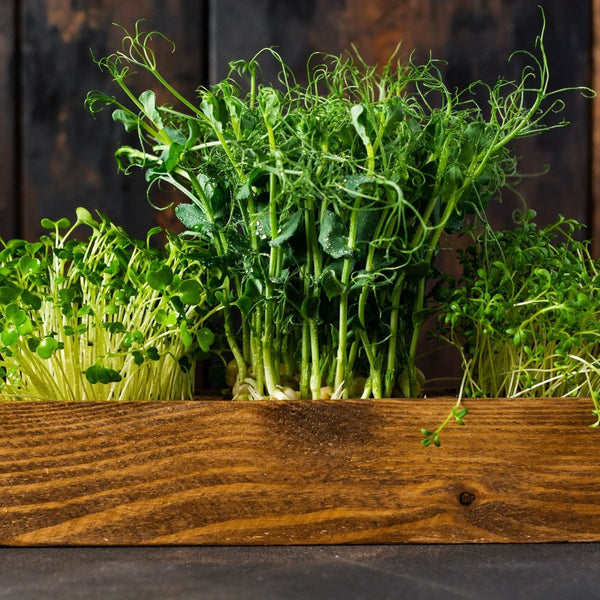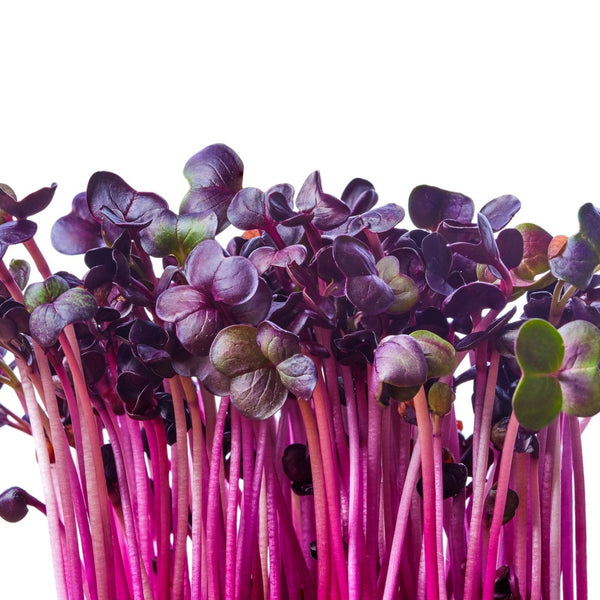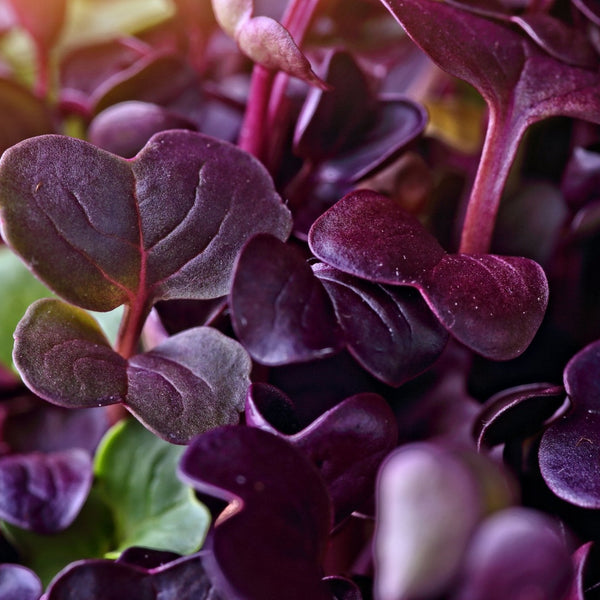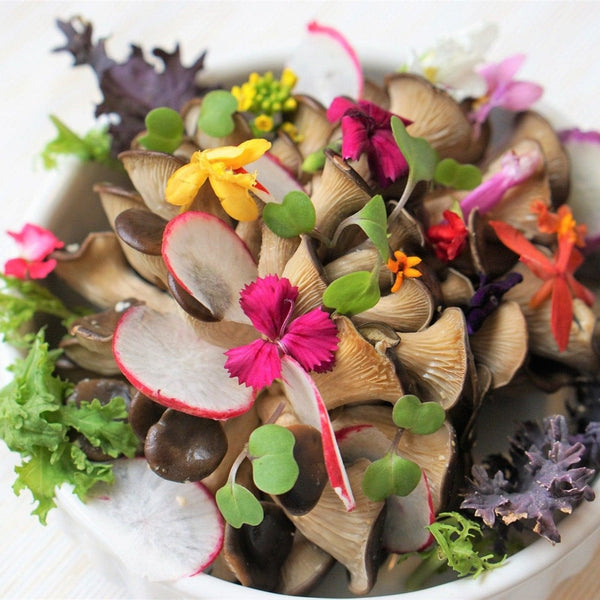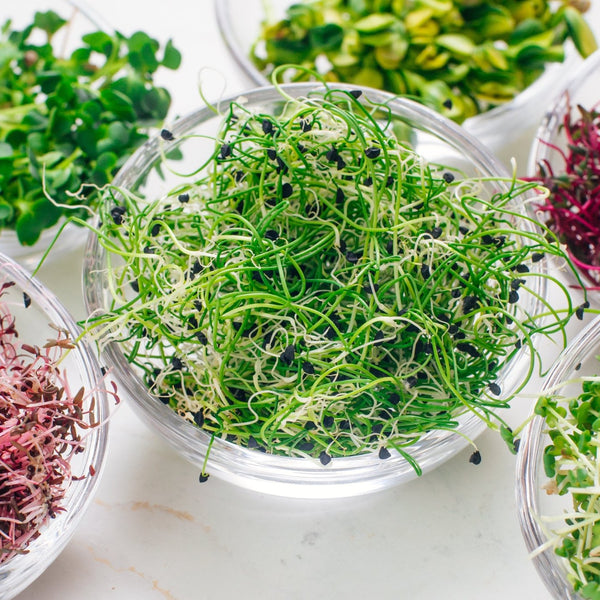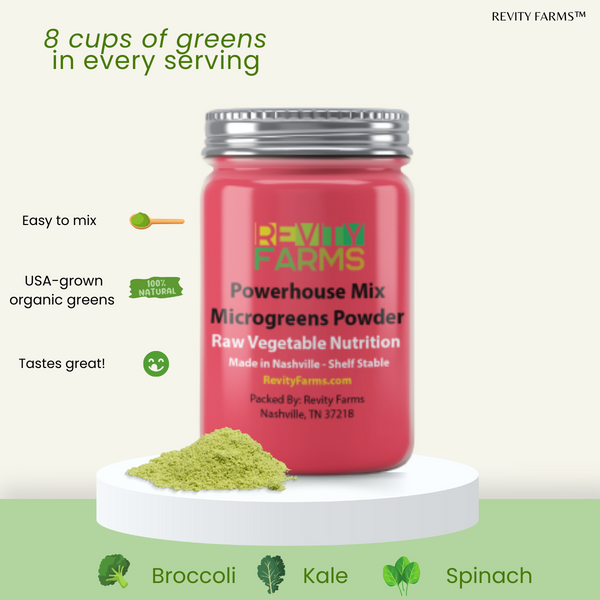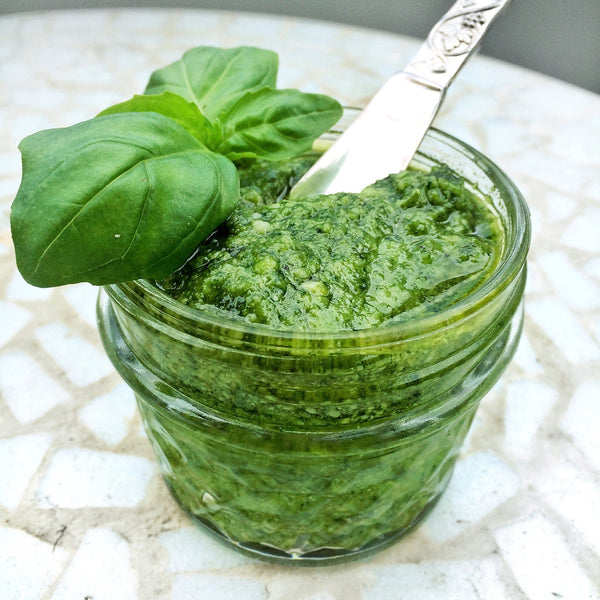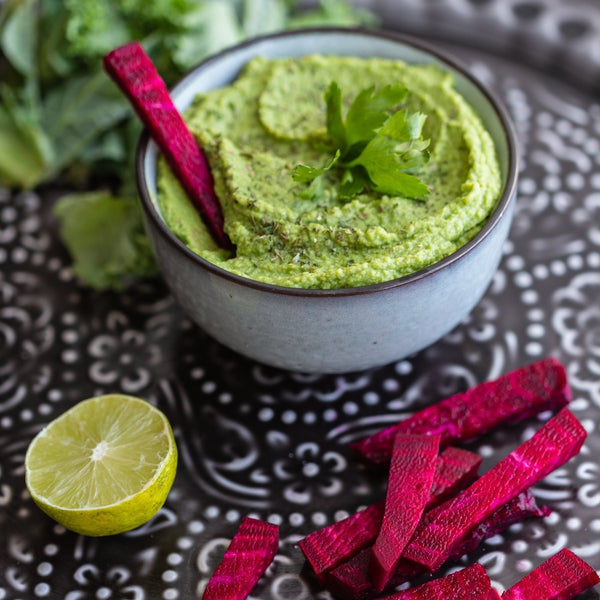When you think of superfoods, what comes to mind? Blueberries, kale, or maybe even chia seeds? But there's a lesser-known superhero in the world of nutrition: microgreens!
Microgreens Explained
Microgreens are young, tender greens that are harvested when they are between one to three inches tall, typically within one to three weeks after germination. They are the intermediate stage between sprouts and baby greens. Don't let their size fool you; these tiny greens are packed with nutrients and can provide a range of health benefits. Microgreens are not just limited to a specific plant family; they can be derived from various types of vegetables, herbs, and even edible flowers. Common varieties include kale, arugula, beet greens, radishes, and cilantro. Microgreens have gained popularity due to their nutritional density, flavor, and aesthetic appeal as a garnish in culinary dishes.
The process of growing microgreens is relatively simple, requiring minimal space and resources, making them accessible for both urban gardeners and large-scale producers. The seeds are sown densely on a growing medium and typically require only water and light to grow, without the need for synthetic fertilizers or pesticides. This makes microgreens a sustainable and eco-friendly option for those looking to incorporate more greens into their diet. In addition to their ease of cultivation, microgreens also offer a unique way to enhance the flavor, texture, and nutritional content of a variety of dishes, from salads and sandwiches to smoothies and soups.
The Nutritional Powerhouse
Microgreens are tiny but mighty, packed full of nutritional goodness. They're like the superheroes of the vegetable world, coming in small sizes but bringing a big punch when it comes to vitamins, minerals, and antioxidants. Think of them as concentrated bundles of health, ready to boost your well-being.
-
Vitamins and Minerals
Microgreens are a treasure trove of essential vitamins and minerals that are crucial for maintaining optimal health. They are particularly rich in vitamins A, C, E, and K. Vitamin A is vital for maintaining healthy vision and a robust immune system. Vitamin C is an antioxidant that plays a key role in collagen production, which is essential for healthy skin, blood vessels, and wound healing. Vitamin E is another powerful antioxidant that helps protect your cells from damage, while vitamin K is important for proper blood clotting and bone health.
When it comes to minerals, microgreens are packed with calcium, magnesium, and iron. Calcium is essential for strong bones and teeth, as well as proper muscle function. Magnesium plays a crucial role in various biochemical reactions in the body, including energy production, muscle and nerve function, and the regulation of blood pressure. Iron is essential for transporting oxygen in the blood and preventing anemia.
By incorporating microgreens into your diet, you're not only adding a burst of flavor to your meals, but you're also giving your body a boost of essential vitamins and minerals that are vital for maintaining good health.
Antioxidants
Antioxidants play a crucial role in protecting the body from the harmful effects of free radicals, which are molecules that can damage cells and contribute to chronic diseases and aging. These powerful compounds neutralize free radicals by donating electrons, which prevents them from causing harm.
There are various types of antioxidants, with some of the most well-known being vitamins C and E, carotenoids, and phytochemicals. These antioxidants are found in a variety of foods, particularly fruits and vegetables. For example, vitamin C is abundant in citrus fruits, while vitamin E can be found in nuts and seeds. Carotenoids, which give fruits and vegetables their vibrant colors, are also potent antioxidants.
Incorporating a diverse range of antioxidant-rich foods into your diet is an excellent way to support your overall health. These nutrients work together to protect your cells from damage, potentially reducing the risk of chronic diseases and promoting a healthy aging process.
Supports Health
A diet rich in antioxidants, vitamins, and minerals can contribute to better heart health. Foods high in these nutrients can help reduce the risk of chronic diseases, such as cardiovascular diseases. For example, avocados contain healthy fats, vitamins, and minerals that support heart health and can aid in immune support and weight management.
Promotes Gut Health
A healthy gut is fundamental to overall health, as it supports the immune system and helps prevent diseases. Foods rich in fiber, as well as probiotic and prebiotic foods, are excellent for maintaining gut health. Dietary polyphenols found in grapes, grains, tea, cocoa, and berries have also been shown to promote gut health and are linked to various health benefits.
Enhances Skin Health
Nutrients that support heart and gut health often also benefit the skin. A healthy diet can lead to healthier, more vibrant skin. Collagen supplements, in particular, have been shown to improve skin health. They can potentially relieve joint pain, prevent bone loss, and promote a healthy heart, among other benefits. Additionally, there is a profound bidirectional link between gastrointestinal health and skin homeostasis, which can be regulated through diet and lifestyle changes.
Aids in Weight Loss
Physical activity can help manage weight by burning calories and improving metabolism. It also helps to control blood sugar levels, which can be important for weight management. Additionally, specific dietary practices such as intermittent fasting have been shown to assist with weight loss and appetite control.
Supports Brain Health
Being physically active can improve brain health and cognitive function. There is also evidence to suggest that intermittent fasting can have positive effects on brain and cognitive health.
Regulates Blood Sugar Levels
Physical activity helps control blood sugar levels and lower the risk of heart disease and nerve damage. Regulating blood sugar levels through diet and lifestyle can also have positive impacts on hormone regulation, mental health, immunity, and cardiovascular health.
Boosts Immunity
A balanced diet with whole fruits, vegetables, lean proteins, whole grains, and plenty of water can help support a healthy immune system. Regular physical activity is also beneficial for immune health.

How to Incorporate Microgreens in Your Diet
Smoothies
Add a handful of microgreens to your morning smoothie for a nutrient-packed drink that will start your day off right.
Salads
Mix microgreens with other greens for a delicious and nutritious salad. The different flavors and textures of the microgreens can add a new dimension to your salads.
Sandwiches and Wraps
Use microgreens as a filling in sandwiches and wraps for a tasty and healthy alternative to lettuce.
Garnishes
Sprinkle microgreens on top of soups, pasta dishes, or other meals for a burst of flavor and a boost of nutrients.
Last but not least, microgreens are a powerful superfood packed with vitamins, minerals, antioxidants, and other beneficial plant compounds. These tiny greens have a significant potential to impact health positively, including the prevention of non-communicable diseases. The high antioxidant content in microgreens may play a crucial role in preventing a range of diseases by combating oxidative stress and inflammation.
Furthermore, microgreens can be easily integrated into one's diet, adding a nutritional boost to meals. They are also versatile, making them an accessible option for those looking to improve their diet and health. With their rich nutritional profile and potential health benefits, microgreens are an excellent addition to a balanced and healthy diet.
It's important to note that while microgreens are a nutritious option, they should be consumed as part of a balanced diet that includes a variety of foods. As research on microgreens continues to unfold, it will be exciting to see the potential health benefits that these tiny greens may offer. Until then, enjoy microgreens as a tasty and nutrient-rich addition to your meals!
